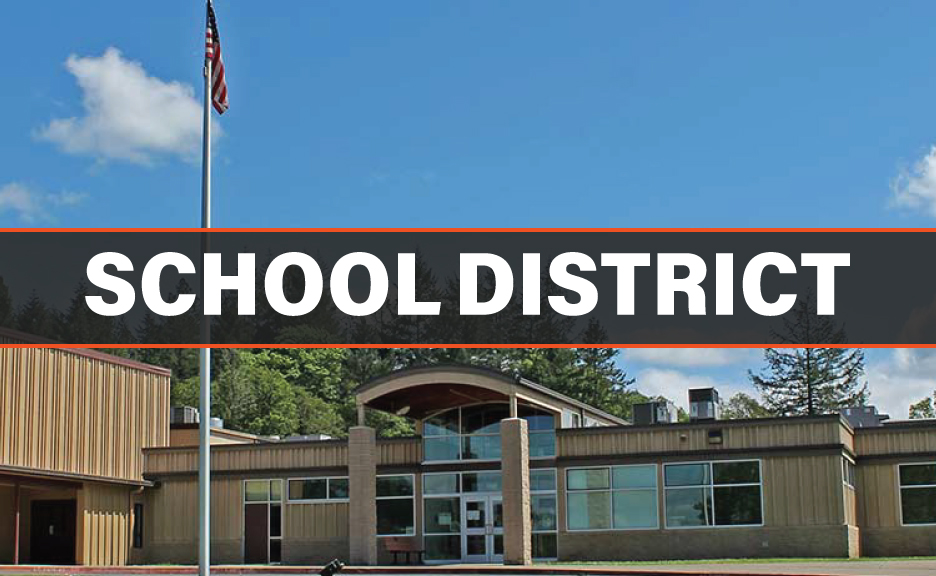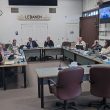By Kelly Kenoyer
Lebanon Local
Lebanon School District is involved in a tough negotiation with the teacher’s union, it appears, and tensions spilled over through written comments to the school board ahead of its executive session dealing with union representatives Dec. 10.
Board members Tom Oliver, Todd Gestrin, Mike Martin, and Richard Borden attended the meeting virtually through Zoom.
It began with the reading of nine different letters from members of the union or community members. They included concerns about insurance, the lack of a cost-of-living increase, and an increase in prep time at elementary schools.
“We often lose employees to other districts or employers because many of our people can’t afford to have this be their only job,” wrote district staff member Dana Riggle. “I’m confident you all will do what is right by the people that work here and approve the higher COLA percentage being offered by the union.”
Several district employees said they were likely to leave the district if wages weren’t increased or if they weren’t offered affordable insurance.
The letters are likely related to the executive session “To conduct deliberations with persons designated to carry on labor negotiations.”
Nancy Bauer, a teacher at the high school, wrote that district’s plan last week was a “huge step away from the disrespect I’ve been feeling.”
Board member Richard Borden took umbrage with that remark, and said that pay and respect should not be tied.
“I have great respect for our teachers and staff,” he said.
After that public comment, the board moved on to its regularly scheduled business.
Supt. Bo Yates updated the board on the blueprint for elementary schools to return to in-person instruction, although that can’t happen until Linn County gets out of the “extreme risk” category it currently sits in for COVID-19.
“We’ve updated our elementary blueprint for when we can bring students back in for regular in school instruction, we wanted to do it on an every day basis rather than a rotation,” he said.
The blueprint calls for students to be in class every weekday from 8 a.m. to 1 p.m. once students are allowed to be back in classrooms, with classrooms of up to 20 students.
Martin asked how close the district is to getting young students in school.
Yates responded, “We’re as close as I am to you right now, which is not very close.”
On-site instruction for all students can now occur when there are fewer than 50 cases per 100,000 over a 14-day period. Younger students are allowed back when there are 50 to 100 cases per capita in the county over that two week period. While Linn County met those metric standards in late August and early September, but hasn’t met them since then.
For the period of Nov. 22 to Dec. 5, Linn County had 393.5 cases per 100,000, nearly eight times the maximum it is allowed to get kids back in school.
“What this plan does is allow us to keep track of where we’re at,” Yates said of the blueprint. “We’ll track the data and let people know.”
In other board business:
♦ Yates provided an attendance update for the board, which showed a drop in enrollment of four students from last month, to 3,467 across the district. Attendance at the elementary schools ranges from 86.4% to 92.4%, but is much worse at Seven Oak Middle School and Lebanon High School, which are at 79.9% and 73.3% respectively. The High School has had a two-point drop in attendance from October to November.
Borden asked Yates what the district is doing to address attendance.
“We’re trying to make calls and communicate with students,” he replied. “There’s a little variability in how we take attendance,” he added, which the district will try to address.
The board requested an update on strategies to increase attendance at the next board meeting.
♦ Board members unanimously approved a resolution to impose the construction excise tax, which was discussed at the last board meeting. The tax, which takes effect on Jan. 1, 2021, on new construction of up to $1.25 per square foot on residential structurers, and $0.62 per square foot on non-residential structures. The tax is limited to $33,700 per building permit or structure, whichever is less.
♦ Business Director Will Lewis gave a financial report to the board, and requested a special meeting on Dec. 17 to address two pressing matters.
The first, that the district has chosen an architectural and consulting design firm for the high school seismic retrofit project, needs to happen sooner than the next board meeting in January to keep that project on schedule, he said. He requested a “quick little approving meeting” in th interim to get the project moving in a timely fashion.
The other issue is a result of the Lebanon fire department rebuilding its headquarters, he said. The district was using the tank at the department for its fueling station, but “the card lock system at the end of last week stopped working,” Lewis said.
The school district has until the tank runs dry to figure out a replacement contract, as the department is “cutting everyone off,” he said.
Lewis said he had a plan he would bring to the board at the special meeting, and said he expects $205,000 to $250,000 in fuel costs annually.
Oliver suggested getting a short-term contract as a stop-gap, then seeking all available options further down the line.
♦ The high school’s vocational training house was cleared by the city and is going to market, Lewis said. “At the end of the day, it looks like we will clear approximately $200,000.”
He gave credit to Vocational Teacher Eric Frazier for seeing the project through “despite all the challenges” of this year, including COVID-19.
♦ The board’s consent agenda drew more discussion, particularly a section of new board policies related to COVID-19 leave. Assistant Supt. Jennifer Meckley said the district is already following those policies, as mandated by law, which allow employees to take 80 hours of paid COVID-19-related leave.
Martin said the policies are “so open-ended, I can’t believe it’s a law, to be honest.”
“It’s adding 10 days of sick leave to every employee in the district.”
Kim Grousbeck, Human Resources Director, said the leave is typically funded by federal grants the district already has.
Oliver had other concerns: “Does it need to be in board policy if we’re already following the statute?”
After being informed that the policies are “recommended” but not mandatory, the board declined to move on the policies, and the topic died without a vote.
♦ Similarly, a set of policies passed down from the state legislature called “all students belong” drew criticism from Martin for being too similar to the existing equity policy.
Meckley responded that these policies are directly focused on hate symbols, which has not been addressed in existing district policy. The policy prohibits the use of “symbols of hate” including the noose, swastika, or confederate flag.
Martin said the policy is unnecessary and repetitive beyond the section on hate symbols.
Meckley told the board the new policy is “required through legislation,” but that board members could table the discussion and compare the old policy to the new.
“There’s a lot of policies that are redundant,” she added. The board members agreed to table the discussion for the next meeting, and asked staff to bring copies of both to review. The rest of the policies passed unanimously.
♦ The board also approved the hire of two temporary full-time employees: secondary special Education teacher Patricia Pierce and secondary band/choir teacher Mark Anderson.
Gestrin asked what the band teacher could be doing during distance learning, and Grousbeck said he was receiving backfilled family and medical leave, but is also assigned class periods during the day, much like every other teacher.




